Purcell: The Fairy Queen (Christie)
Introduction
In the late 17th century, there were several playwrights and actors who decided that they were able to, and indeed should produce more 'approachable' versions of Shakespeare's plays. These included William Davenant, Thomas Betterton, Nahum Tate (one of Purcell's more important collaborators), Thomas Shadwell and even John Dryden. Nowadays, thankfully, apart from the updating of his works to more 'relevant' contemporary settings, the text itself remains much as it was originally conceived.
For staged versions of The Fairy Queen, an anonymous adaptation of A Midsummer Night's Dream is generally added (it may actually be the work of Betterton), and this production squeezes as much of the text in as it can.
The demands which are placed on producers who plan a full version are enormous. The show almost bankrupted the theatre at which it was originally staged, and this is why Purcell's music is most often performed on its own. In Glyndebourne's offering, Jonathan Kent and William Christie have collaborated on possibly the most complete version of the 'semi-opera' there has been since the orginal production in 1692.
Audio and Visual
No problems in either. The relatively light scoring allows plenty of contrast when the music is to the fore, and of course, when it isn't, we only have the voices to be concerned about. Here, diction is perfect, and subtitles should only be needed when references to some arcane sources such as "..can make a Venus of an Aethiop" pop up and you have to go back, turn the 'titles on and see William Gaunt stumble over the phrase over and over again.
Extras
Two helpful shortish items on the music and the staging. Here, Christie explains that the edition they are using is brand new, and has been stripped of all tempi and dynamics. This allows him to match the music to the text without any pre-conceived ideas of how things may have been donebefore.
Jonathan kent admits that it's not a particularly coherent piece, with music, text and visuals all vying for supremacy. But with its "sublime, gameful lyricism and course vulgarity" in equal meaure, the one thing most are agreed upon is that it is a particularly English work.
Conclusion
There is, in all honesty, rather too much to enjoy, but that's not really a complaint. Anyone expecting to hear any of your actual singing will have to wait over 20 minutes, however with acting talent such as we have here, together with Purcell's incredible music, sung with skill, passion and extreme tenderness in equal amounts, it's an honour to be able to witness such a performance.
It's probably a good thing that the text is 'Shakespeare-lite' (as is mentioned in the booklet and extras on the disc) as without the chopping and changing, it would be rather too long and too rich an artistic meal to digest.
The spoken scenes do seem to take more prominence, especially in the first few acts, but despite the sometimes embarrassing rhyming couplets and peculiar changes to the orginal text ("Puppet" is changed to "Pygmy" within Helena and Hermia's particularly bitchy argument) we don't ever lose track of the wood despite the trees.
Special mention has to go to Desmond Barrit's impressive 'Bottom' (hoho), for not only his over the top South Walian-ish accent, but also his 'alf tidy baritone singing voice. In fact, all The Mechanicals do a fine job, being introduced as contract cleaners within the palace and taking over the action as and when they can. Despite all the obvious anachronistic details, the humour is always relevant and sneaky moments such Snug the Joiner's attempt at passing out business cards and outlandish bunny sex make this a proper theatrical experience…perhaps not for all the family.
Sally Dexter and Joseph Millson are a great team as Titania and Oberon, all over each other like a married couple…so the hostility is tangible. Jotham Annan is as mercurial a 'Puck' as you would want, and all four of the lovers are as annoying as they have been in all the productions I have seen or been involved with myself, and so all is well there.
Musically, and being a 'semi-opera, I have no complaints at all. William Christie has arranged, and directs a performance which is never less than full of life and all that goes with the best informed 'authentic' baroque performances is presented to us in spades.
The music for the 'Four Seasons' of Claire Debono, Sean Clayton, Adrian Ward and Andrew Foster-Williams could be a major concert work in itself, and the Adam and Eve of Ed Lyon and Helen-Jane Howells are almost from another musical world. The highlight however, and it's worth waiting for, is Carolyn Sampson's unbelieveably moving "O, let me weep" (otherwise known as 'The Plaint').
This is a riot of colour and theatrical wizardry from beginning to end, possibly only spoiled by the generally appalling way someone butchered the original text, but the way things are delivered, you cannot help but get sucked into this particular dream.
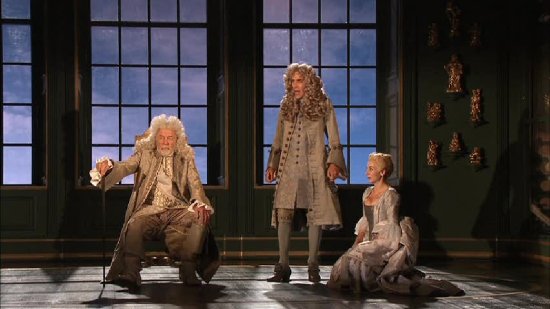
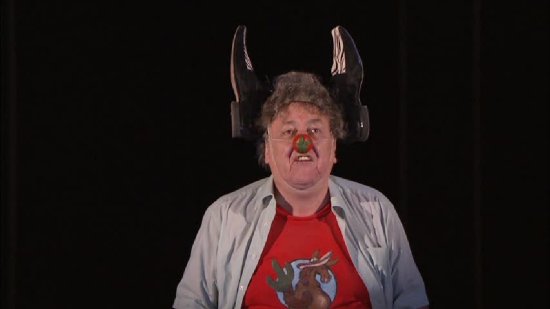
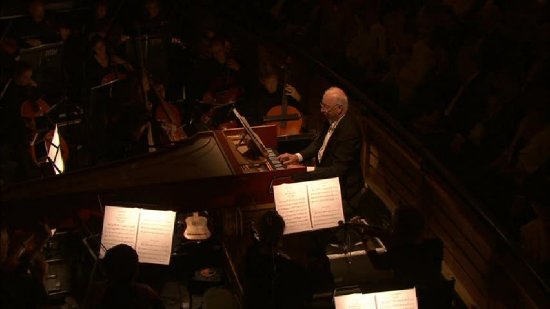
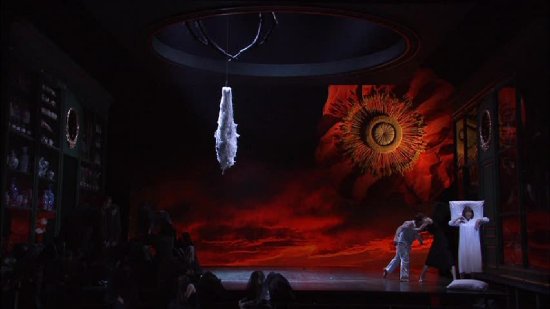
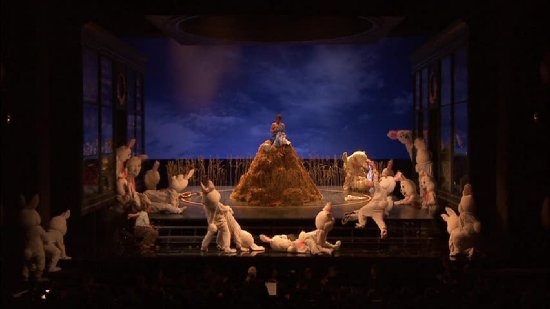
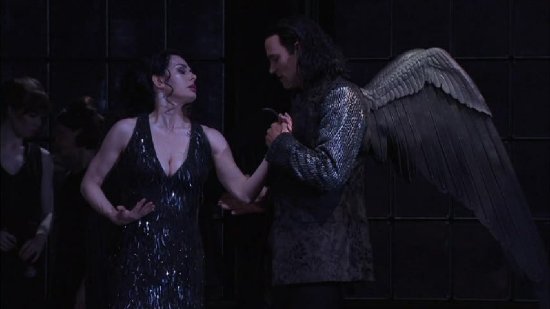
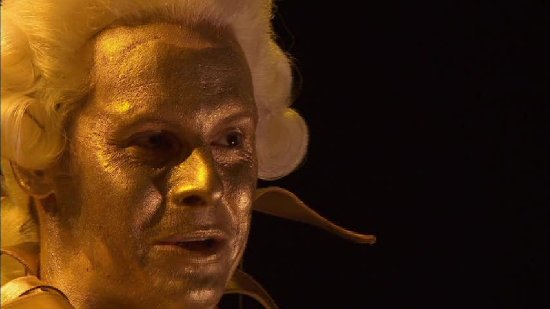
Your Opinions and Comments
Be the first to post a comment!